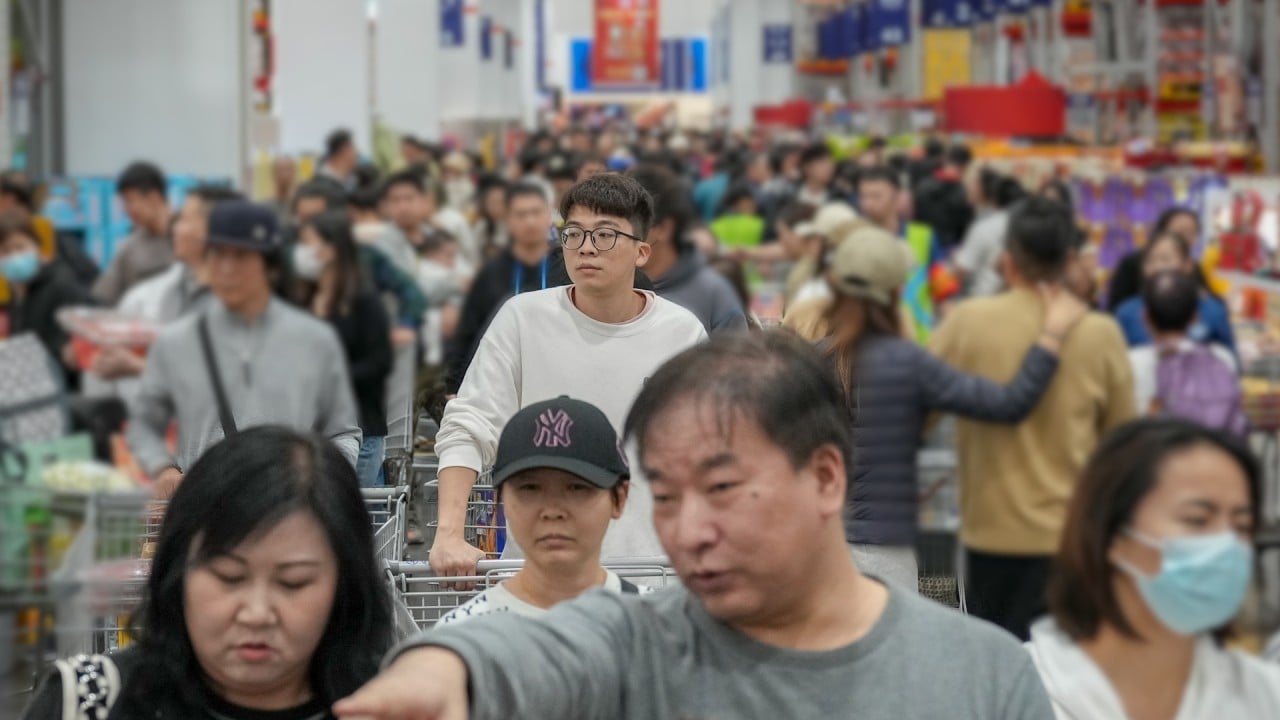
Why Hongkongers should resist Costco FOMO
- Fear of missing out on the latest trend or a great bargain may be motivating Hongkongers to make a beeline for big-box retailers across the border
- However, the wider economic and environmental impact of this style of retailing deserves attention
The Lotso and Hermes are a great marketing move. Photos of the gigantic bears being wheeled out caused quite a stir. Why a luxury brand would have its bags sold at a utilitarian warehouse setting is any one’s guess, but it made for a great story.
Some of those who gave up hours of their time to stand in line – one key opinion leader from Hong Kong reportedly chose to spend the night in Shenzen before the opening – at the store opening said they went for the shopping experience. And, oh boy, it is an experience.
I grew up with Costco in the US. Every trip to Costco really was an elaborate family event. One designated member paid for the membership. The rest – usually the extended family – consolidated their shopping lists. Then came coordinating who would head out in one car and when, the battle for a parking spot, navigating the crowds with shopping trolleys and the checkout lines, and dividing up the spoils as we loaded the trunk.
And there was the aftermath: storage. For one, there were the boxes of toilet paper and kitchen towels. And inevitably weeks later, when sick and tired of stuffing my face with the tapioca treats, I would wonder how to get rid of the 40 more taking up space without my mother noticing.
While trying something new and satisfying our curiosity is good, “smart” consumers must question whether this form of retail makes sense. For one, you’re being charged to shop while you can shop for free elsewhere.
As Shenzhen megastores spark bulk-buying frenzy, can Hong Kong shops fight back?
The “Costco Effect” – I’m not talking about the shopping experience or the love-hate relationship with the retailer many eventually develop – is worth thinking about.
Costco was the third-largest retailer in the world in the 2021-22 financial year, according to Deloitte’s Global Powers of Retailing report. While having a Walmart open in an area has been known to drive prices down for competing supermarkets, a study found that having a Costco in the area drives prices up for neighbouring supermarkets, as they choose to focus on less price sensitive consumers who would steer clear of the Costco queues. So whether our Costco-induced adrenaline rush will drive up inflation is food for thought.
Moreover, shouldn’t we think more seriously about the impact of our consumption behaviour on the planet? Do we really need a dozen pairs of new socks or just one?
There’s something for the Hong Kong government to reflect on too here. While two free bus lines connecting Costco with Futian checkpoint and Shenzhen North railway station, to facilitate travellers from Hong Kong, what have we done to facilitate travellers to Hong Kong?
Are mega events the financial secretary has promoted enough to get people to come to Hong Kong? Maybe. Nevertheless, the government needs to do some serious soul-searching on how to reinvent the city and our attractions so that it’s a place travellers fear missing out on.
Alice Wu is a political consultant and a former associate director of the Asia Pacific Media Network at UCLA


